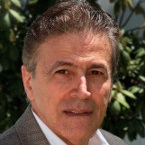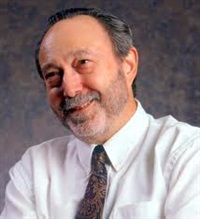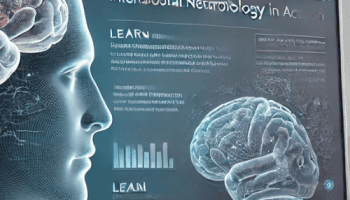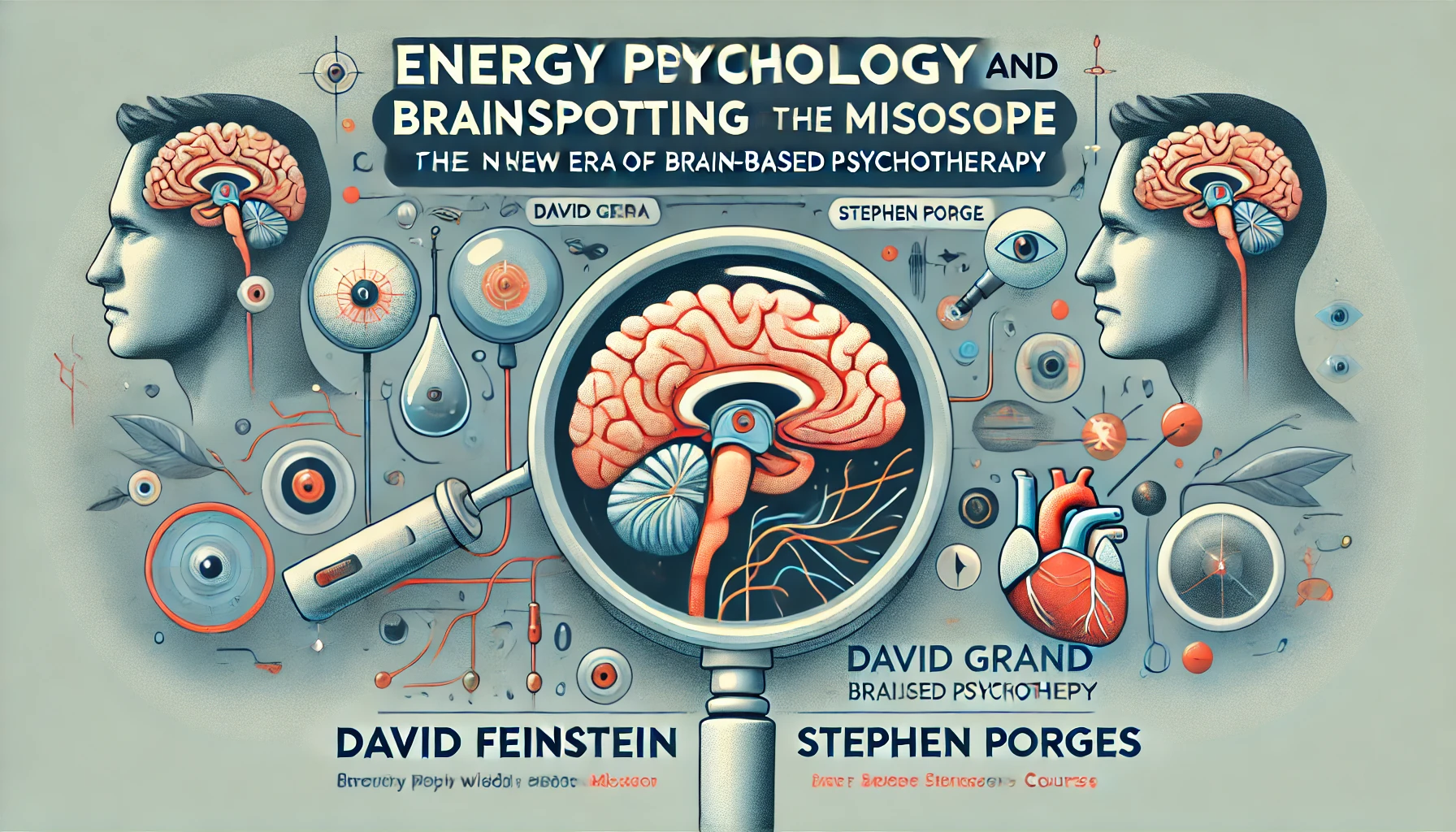Energy Psychology and Brainspotting under the Microscope-The New Era of Brain-Based Psychotherapy – David Feinstein, David Grand, Stephen Porges
Energy Psychology and Brainspotting under the Microscope-The New Era of Brain-Based Psychotherapy – David Feinstein, David Grand, Stephen Porges has the same quality as the author’s salapage.
Overview
Salepage check: Energy Psychology and Brainspotting under the Microscope-The New Era of Brain-Based Psychotherapy
Author: David Feinstein, David Grand, Stephen Porges

- Faculty:
- David Feinstein | David Grand | Stephen Porges, PhD
- Duration:
- 2 Hours 2 Minutes
- Format:
- Audio and Video
- Copyright:
- Mar 18, 2016
Description
Recent years have seen a cascade of innovative psychotherapies claiming to routinely achieve dramatic breakthroughs without relying on many of the fundamental features of traditional talk therapy. Using videos of clinical sessions, this workshop will focus on two of the most influential of these approaches, Emotional Freedom Technique and Brainspotting, exploring how the practical clinical procedures used by each model trigger the neurobiological changes that can result in rapid therapeutic improvement. Moderating the discussion will be noted neuroscientist Stephen Porges, developer of the Polyvagal Theory.
Handouts
| Handout (2.17 MB) | 15 Pages | Available after Purchase |
Outline
Review of Approaches
- Emotional Freedom Technique (EFT)
- Brainspotting
Faculty

David Feinstein, Ph.D.
David Feinstein, Ph.D., is a clinical psychologist and 9-time national award-winner for his books on consciousness and healing. He and his wife established the world’s largest organization teaching energy medicine, and their latest book, The Energies of Love, achieved best-seller status on the NY Times Relationship List. He has also written more than 100 articles in the professional literature.
Dr. Feinstein has served on the faculties of The Johns Hopkins University School of Medicine, Antioch College, and the California School of Professional Psychology. In addition, he received the 2002 and 2012 “Outstanding Contribution” Award from the Association for Comprehensive Energy Psychology, the U.S. Book News Award for the Best Psychology/Mental Health Book of 2007, the 2015 “Outstanding Leadership” Award from the Canadian Association for Integrative and Energy Therapies, and the Infinity Foundation’s 2013 “Spirit Award” (with his wife) for their contribution to “the evolution of consciousness” and its “impact on society”.
Speaker Disclosures:
Financial: David Feinstein directs The Energy Medicine Institute. He is an author and receives royalties. Dr. Feinstein receives a speaking honorarium from PESI, Inc.
Non-financial: David Feinstein is a member of the American Psychological Association; and the Association for Comprehensive Energy Psychology.

David Grand, Ph.D.
David Grand, PhD, is a psychotherapist, writer, lecturer, performance coach, and humanitarian famous for the discovery and development of the internationally acclaimed Brainspotting method, which brings about life-changing breakthroughs at “Warp Speed.” Dr. Grand is a Licensed Clinical Social Worker with a PhD from International University, and is renowned for his groundbreaking discoveries and advancements in the arenas of healing trauma and enhancing performance and creativity. His Brainspotting method and BioLateral Sound are now used by thousands of therapist on every continent seeking to break through the limitations of talk therapy. Dr. Grand is the author of Brainspotting: The Revolutionary New Therapy for Rapid and Effective Change.
Speaker Disclosures:
Financial: David Grand maintains a private practice. He is the developer of the Brainspotting method. Dr. Grand receives a speaking honorarium from PESI, Inc.
Non-financial: David Grand has no relevant non-financial relationship to disclose.

Stephen Porges PhD
Professor
Kinsey Institute, Indiana University and Department of Psychiatry at the University of North Carolina- Chapel Hill
Stephen W. Porges, PhD, is Distinguished University Scientist at Indiana University, where he is the founding director of the Traumatic Stress Research Consortium within the Kinsey Institute. He holds the position of Professor of Psychiatry at the University of North Carolina and Professor Emeritus at the University of Illinois at Chicago and the University of Maryland.
Dr. Porges served as president of both the Society for Psychophysiological Research and the Federation of Associations in Behavioral & Brain Sciences and is a former recipient of a National Institute of Mental Health Research Scientist Development Award. He has published more than 300 peer reviewed scientific papers across several disciplines including anesthesiology, biomedical engineering, critical care medicine, ergonomics, exercise physiology, gerontology, neurology, neuroscience, obstetrics, pediatrics, psychiatry, psychology, psychometrics, space medicine, and substance abuse.
In 1994 Dr. Porges proposed the Polyvagal Theory, a theory that links the evolution of the mammalian autonomic nervous system to social behavior and emphasizes the importance of physiological state in the expression of behavioral problems and psychiatric disorders. The theory is leading to innovative treatments based on insights into the mechanisms mediating symptoms observed in several behavioral, psychiatric, and physical disorders.
He is the author of The Polyvagal Theory: Neurophysiological foundations of Emotions, Attachment, Communication, and Self-regulation (Norton, 2011), The Pocket Guide to the Polyvagal Theory: The Transformative Power of Feeling Safe (Norton, 2017) and co-editor of Clinical Applications of the Polyvagal Theory: The Emergence of Polyvagal-Informed Therapies (Norton, 2018).
Dr. Porges is also the creator of a music-based intervention, the Safe and Sound Protocol™, which currently is used by more than 1000 therapists to improve spontaneous social engagement, to reduce hearing sensitivities, and to improve language processing, state regulation, and spontaneous social engagement.
Speaker Disclosure:
Financial: Stephen Porges is a Distinguished University Scientist at Indiana University; and a professor at the University of North Carolina. Dr. Porges has intellectual property rights, and receives royalties from Integrated Listening Systems (now Unyte). In addition, he holds patent rights licensed to NeuralSolution for the technology embedded in PhysioCam and in technologies embedded in products marketed by Unyte. He is an author for W. W. Norton and receives royalties. Dr. Porges receives a speaking honorarium from PESI, Inc.
Non-financial: Stephen Porges has no relevant non-financial relationship to disclose.
Curriculum
FAQs
Requirements
- Basic knowledge of psychology or psychotherapy is beneficial.
- An open mind to explore new methodologies in brain-based therapy.
- No prior experience with energy psychology or brainspotting is necessary.
Features
- Insights from top experts in the field: David Feinstein, David Grand, and Stephen Porges.
- Learn practical techniques and the science behind brain-based psychotherapy.
- Gain an understanding of how brainspotting can be used as a powerful tool in therapy.
- Explore the new era of psychotherapy through interactive video lessons.
- Learn from real-life case studies and practical examples.
Target audiences
- Mental health professionals seeking to enhance their therapeutic approaches.
- Psychotherapists, counselors, and psychologists interested in brain-based therapy techniques.
- Students and practitioners in psychology looking to learn about innovative therapy methods.
- Anyone interested in understanding how energy psychology and brainspotting work.






